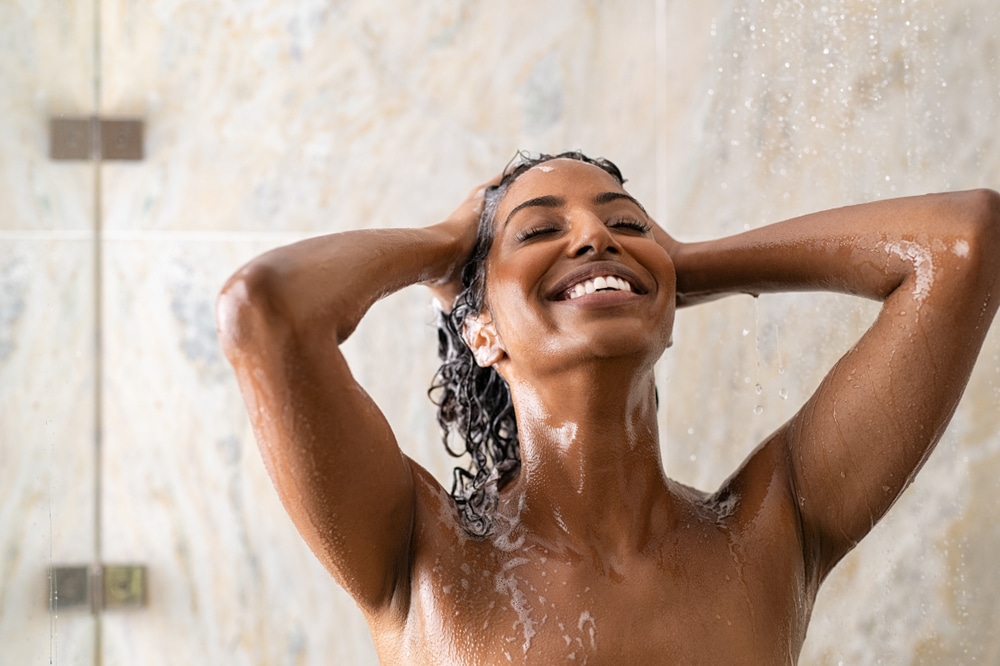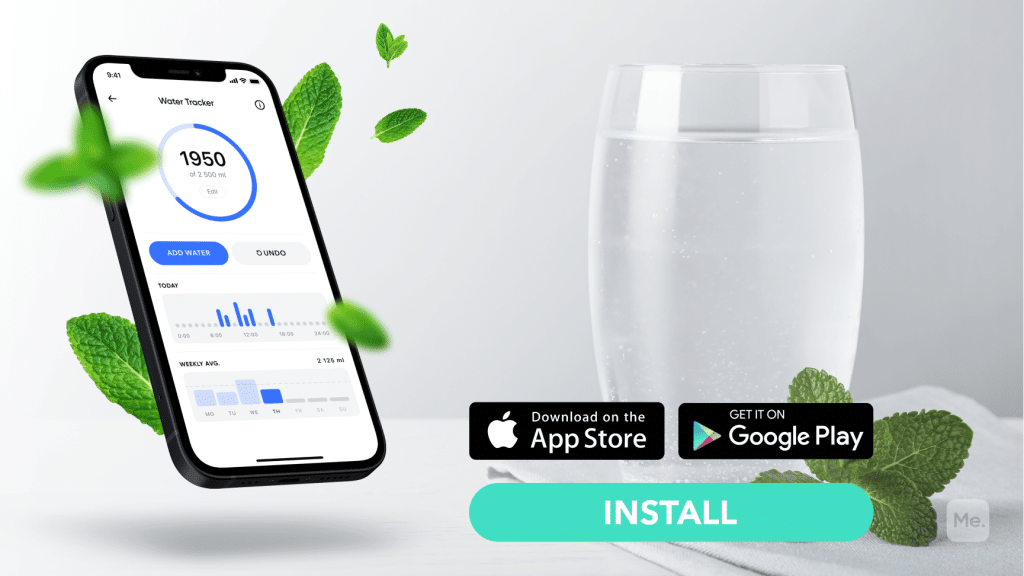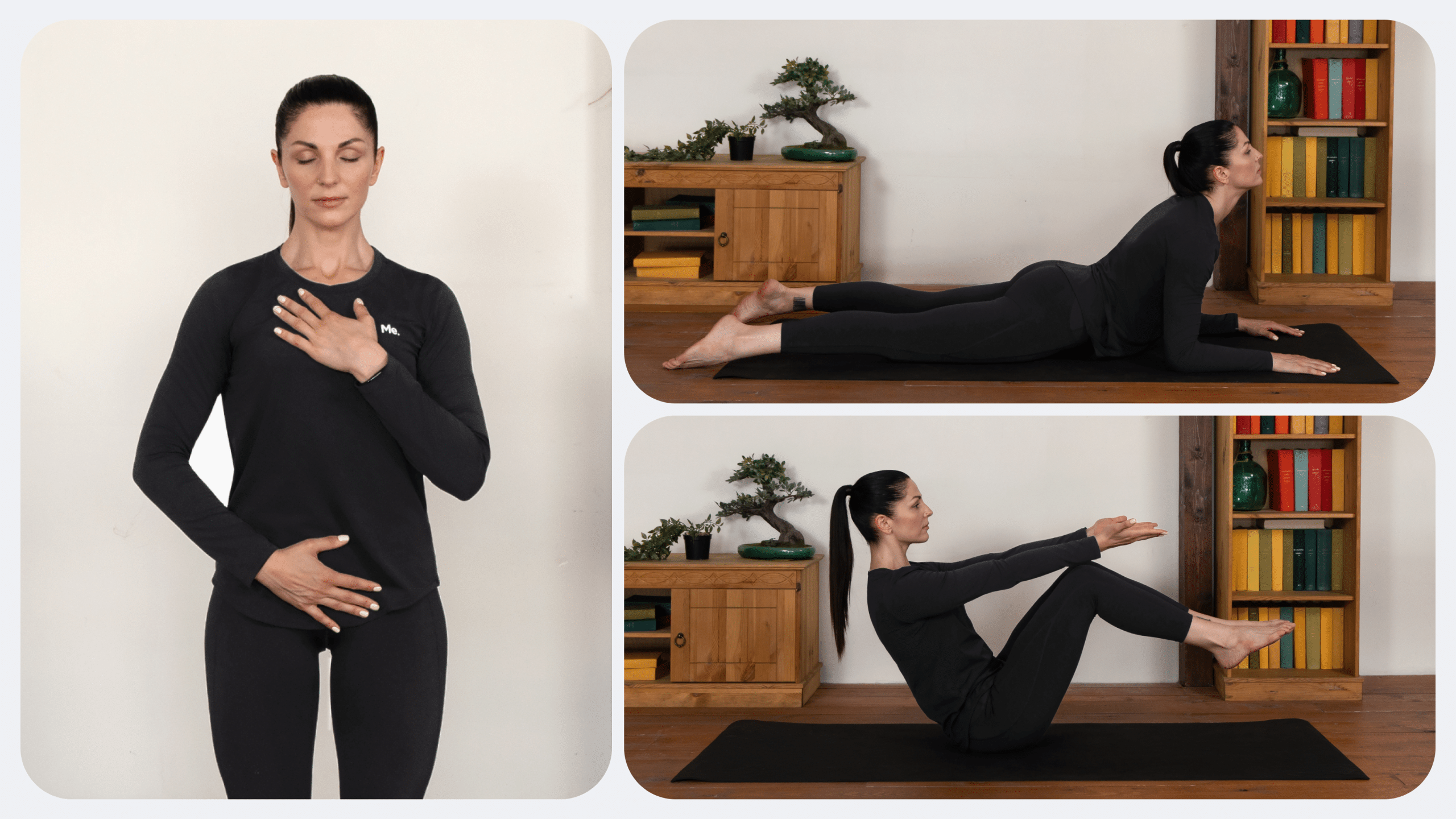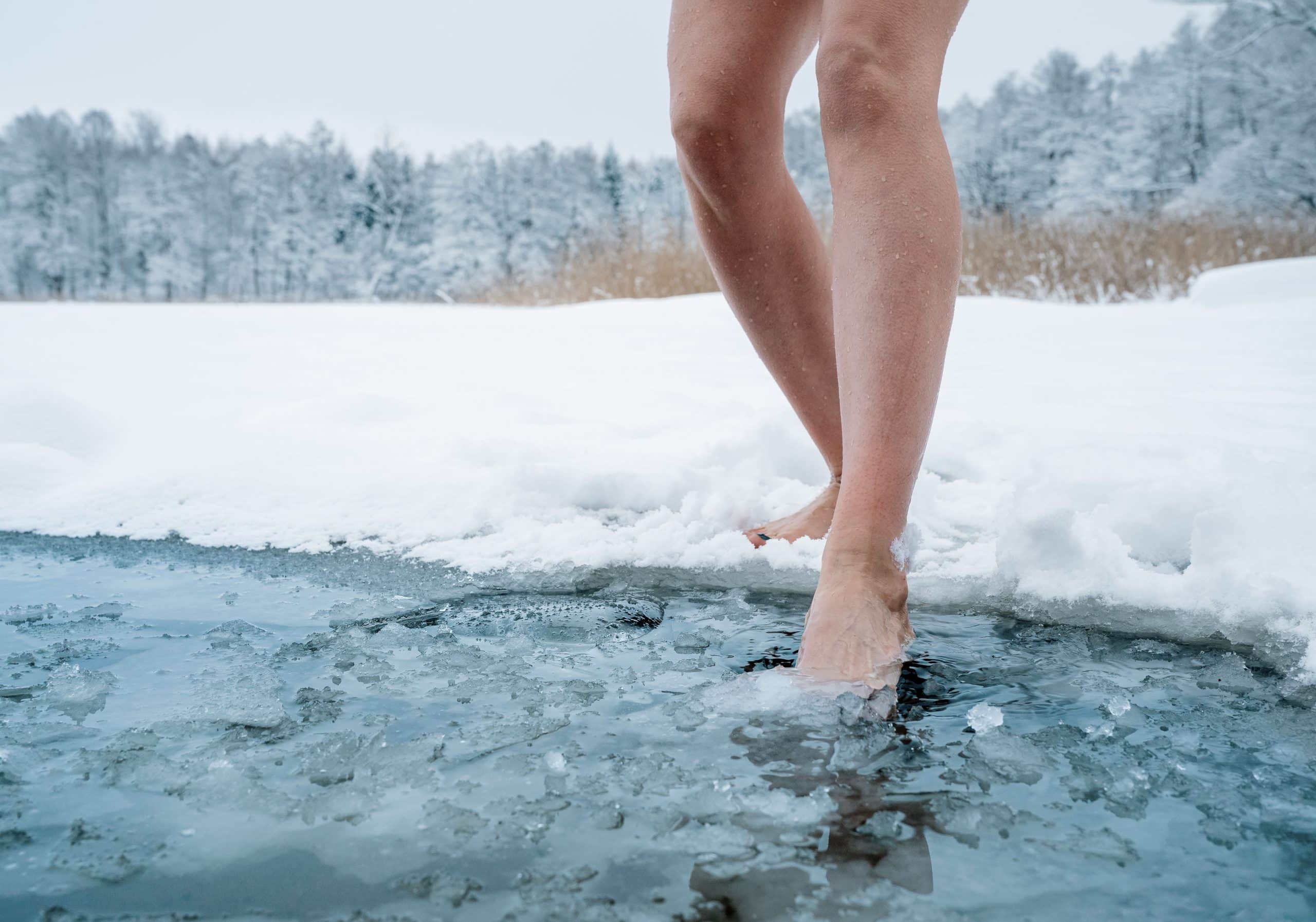If you’ve recently revamped your hair care routine yet you’re still struggling with dry or damaged hair, you may want to hone in on your wash days and really pay attention to the temperature of your water. It may sound like an insignificant detail, but it turns out that the temperature of your shower water can have a major impact on the health of your hair. For years, we’ve known that overwashing (which many assume is simply defined by how many times you’re lathering up) can lead to dryness, split ends and damage. But what isn’t discussed as much is the temperature of the water you use during your wash days. Read on as we explore the often-overlooked detail which is water temperature and its effects on hair health.
Get your personalized
meal plan!
Why Is Hot Water Bad For Your Hair?
A hot shower after a long day may feel amazing, but when it comes to your hair health, hot water does more harm than good. Here are 5 reasons why:
It Strips The Hair Of Its Natural Oils
Each hair strand is composed of three layers: the cuticle, cortex, and medulla (3).
Hot water penetrates the hair shaft, causing the cuticles to expand and the protective layer of oils to be stripped away. This can lead to dryness, frizz, breakage and split ends. When the hair dries, it will become more brittle and prone to further damage.
It Irritates Your Scalp
Think of your scalp as the foundation for your hair. If it’s not healthy, your hair won’t be either. Hot water causes inflammation of the scalp, just as it would with any other part of your skin. This may lead to irritation and also strip away any natural oils on your scalp.
Over time, this can lead to dull, lifeless hair as it takes longer for your natural oils to restore.
It May Cause Hair Loss
If you’ve been wondering, “does hot water cause hair loss?” We have an answer for you. Yes, it can. A healthy scalp nourishes healthy hair growth, and hot water can damage the scalp. It follows that if the scalp isn’t healthy, then hair growth won’t be either (2).
Issues like dandruff, itching, redness and irritation can all lead to hair loss.
That said, there are no definitive studies to back this theory up, and it’s important to keep in mind that hair loss can be caused by a wide variety of factors.
It May Lead To A Flaky Scalp
Hot water can strip away the natural oils from your scalp, leading to dryness and flaking.
Dandruff, a condition caused by a buildup of yeast on the scalp, is a common symptom of an overly dry scalp (1). So, if you find yourself dealing with flakes, then you may want to rethink your shower water temperature.
It Can Damage Color-Treated Hair
If you’ve recently colored your hair, then it’s important to keep in mind that hot water can strip away the color. High temperatures will open the hair cuticles, which can cause the color to fade or become duller.
Also, if you’ve recently used a color-depositing shampoo, hot water will strip away the pigment molecules that keep your hair looking fresh and vibrant.
Read More: Hydrate Your Body And Soul: A Guide To Using A Crystal Infusion Water Bottle
Is Hot Water Ever Good For Hair?
If hot water is bad for your hair, then why would anyone ever use it? Well, there are a few situations where hot water may be beneficial:
- It can help to open up the cuticles of your hair, allowing conditioners and other products to penetrate deeper into the hair shaft.
- It can give your scalp a good massage and help to unclog any dirt or oil that may be stuck in the hair follicles.
- It can help to stimulate blood flow to the scalp, which in turn promotes hair growth.
- It can help to remove any product buildup that may be on the scalp or in the hair. This is helpful for people with oily scalps as it can help to control the oils and keep your hair looking clean.
So, there are some benefits to using hot water, but overall it’s best to exercise caution as the risks far outweigh the benefits.
Is Cold Water Good For Your Hair?
Contrary to what you may believe, cold water can actually be beneficial for your hair. Here are some of the benefits of rinsing with cold water:
It Seals The Cuticles
Cold water causes the cuticles to lay flat, making the hair smoother and shinier. This is because it seals in the natural oils that are essential for healthy, hydrated locks. The result? Smooth and bouncy hair.
It Adds Volume
If you’ve been struggling with limp, lifeless hair, then cold water may be the answer. Cold water helps to close the cuticles, creating more volume and lift at the root. This may help to give your hair a boost of volume and texture.
It’s Less Stressful On The Hair And Scalp
Hot water can be damaging to both the hair and scalp. It strips away natural oils, which can lead to dryness, breakage, and irritation. Cold water, on the other hand, is far gentler and less likely to cause damage.
Is Cold Water Ever Bad For Your Hair?
Here are a few reasons why you may not want to use cold water:
It’s Not As Effective At Washing Away Product
Cold water won’t be as effective in removing product buildup, dirt and oil from the hair. This is because it doesn’t open up the cuticles like hot water does, so any product residue will remain in the hair.
It Can Be Uncomfortable
Cold water is often uncomfortable to use, especially during the colder months. Nobody wants the shocking feeling that comes with rinsing their hair in cold water!
It May Temporarily Affect Your Scalp
Very cold water can affect the capillaries on the scalp, temporarily constricting them and reducing blood flow. This can reduce the amount of nutrients (such as oxygen) that reach the scalp. This isn’t good as it can lead to scalp irritation and inflammation.
If you’ve mustered up the courage to crush your weight loss goal, let Betterme take the sting out of this demanding process. Our app will help you restructure your habits, remold your life and crank up your fitness results!
So, Hot Or Cold Water For Hair?
Though a hot shower may feel great, lukewarm water is best for several reasons:
- It helps open the cuticles just enough to get rid of dirt and debris, while not causing as much damage as hot water.
- Lukewarm water helps to keep the natural oils in your scalp intact, which can help protect against dryness and hair breakage.
- It’s also better for color-treated hair as it won’t strip away the pigment molecules that keep your hair looking vibrant.
- Unlike cold water, lukewarm water is pleasant to the touch and won’t shock your scalp or make it difficult to shampoo properly.
How Else Does Water Affect Hair?
In addition to temperature, the mineral content of water can also affect your hair.
Hard water has a higher mineral content than soft water, which can leave residue on the hair and scalp. This can cause dryness and product buildup. Furthermore, hard water can make it more difficult for shampoo and conditioner to lather, which can leave your hair feeling greasy and limp.
You may not get a perfect solution, but using a water softener or filter can help to minimize the effects of hard water.
Soft water, on the other hand, has a lower mineral content and can help to reduce dryness and product buildup. This can lead to healthier looking hair that feels softer and more manageable.
Read More: Reduce Water Retention With These Expert-Approved Tips
The Bottom Line
The temperature of your water can have a big effect on your hair health. Hot water can strip away the natural oils from your scalp, leading to dryness, irritation and even flakiness. It can also damage color-treated hair, making it fade or become duller over time.
In comparison, lukewarm water is best for washing your hair. It helps open the cuticles just enough to get rid of dirt and debris, while not causing as much damage as hot water. It also keeps the natural oils in your scalp intact and is better for color-treated hair.
Remember, a healthy scalp is the foundation for healthy hair. Be sure to keep an eye on your water temperature when washing your hair and adjust it as needed.
DISCLAIMER:
This article is intended for general informational purposes only and does not serve to address individual circumstances. It is not a substitute for professional advice or help and should not be relied on for making any kind of decision-making. Any action taken as a direct or indirect result of the information in this article is entirely at your own risk and is your sole responsibility.
BetterMe, its content staff, and its medical advisors accept no responsibility for inaccuracies, errors, misstatements, inconsistencies, or omissions and specifically disclaim any liability, loss or risk, personal, professional or otherwise, which may be incurred as a consequence, directly or indirectly, of the use and/or application of any content.
You should always seek the advice of your physician or other qualified health provider with any questions you may have regarding a medical condition or your specific situation. Never disregard professional medical advice or delay seeking it because of BetterMe content. If you suspect or think you may have a medical emergency, call your doctor.
SOURCES:
- Revisiting dandruff (2006, onlinelibrary.wiley.com)
- Scalp Condition Impacts Hair Growth and Retention via Oxidative Stress (2018, ncbi.nlm.nih.gov)
- The structure of people’s hair (2014, ncbi.nlm.nih.gov)










